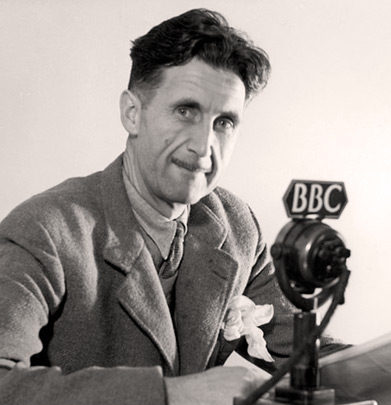Guys, can we get this one straight once and for all?
Barack Obama is a human being.
As such he is entitled to an opinion on anything and everything.
Moreover he is entitled to express that opinion.
Whether you like this or not is irrelevant.
End of.
Category Archives: freedom of speech
Pampered Students
While we’re on people who aren’t impressed, here’s a piece from Harry Mount in yesterday’s Telegraph. Mount is fulminating at the Oxford University students’ demand that a statue of Cecil Rhodes be taken down from the wall of Oriel College because of his imperialist and racist views.

The whole stupid suggestion is, for me, summed up in this one paragraph:
We shouldn’t be so surprised. If you’ve had a lifetime of people saying “yes” to you, of never being told off, you remain frozen in a permanent state of supersensitivity. I wasn’t offended by the Rhodes statue when I was at Oxford 20 years ago. But, even if I had been, I wouldn’t have thought my wounded feelings should be cured by tearing apart the delicate fabric of a beautiful university.
Quite so.
I wonder how many of these same students (or perhaps their academic role models) are (or were) on Rhodes Scholarships? I bet some are.
And moreover I would add that we have to tell history as it was, not how we would like it to have been. To do anything else is not only deceitful but puts you on a short and very slippery slope towards totalitarianism.
Time to grow up, boys and girls!
Language, Politics and War
 I the last couple of days I’ve seen two articles, of very different natures, invoking George Orwell (1903-1950, right) against the deceit and obfuscation of modern politics, and indeed public life generally.
I the last couple of days I’ve seen two articles, of very different natures, invoking George Orwell (1903-1950, right) against the deceit and obfuscation of modern politics, and indeed public life generally.
The first goes under the banner 10 George Orwell Quotes that Predicted Life in 2015 America, although it applies just as well to any other country. Here are a few of the Orwell quotes (sadly not referenced):
All the war-propaganda, all the screaming and lies and hatred, comes invariably from people who are not fighting.
War against a foreign country only happens when the moneyed classes think they are going to profit from it.
In a time of deceit, telling the truth is a revolutionary act.
Journalism is printing what someone else does not want printed: everything else is public relations.
Threats to freedom of speech, writing and action, though often trivial in isolation, are cumulative in their effect and, unless checked, lead to a general disrespect for the rights of the citizen.
I’ll wait here while you think about those for a few minutes …
…
…
…
OK? Good. Then I’ll resume …
The second article is quite a long essay in last Saturday’s Guardian from Dr Rowan Williams, former Archbishop of Canterbury. But don’t let that deter you because the article is erudite, well-written and in the tradition of English essay-writing. It is an edited version of this year’s Orwell Lecture.
[Orwell was working at what may well have been the height of the English art of essay-writing — and he was a master essayist. Essay writing was the way for journalists and intellectuals to summon up and communicate their thoughts; which is why we were taught to write essays at school. It was essentially the 1920s to 1950s version of modern blogging — at least the more serious end of blogging.]
 In his article Williams looks at the way in which Orwell, and his contemporary Thomas Merton (an American Roman Catholic monk, 1915-1968, pictured right), teach us about the language of terror and war. Essentially the thesis is that in order to counteract the obfuscation of “military strategists and politicians” the commentator has to write well — clearly, concisely, transparently — in order to permit communication and hence understanding.
In his article Williams looks at the way in which Orwell, and his contemporary Thomas Merton (an American Roman Catholic monk, 1915-1968, pictured right), teach us about the language of terror and war. Essentially the thesis is that in order to counteract the obfuscation of “military strategists and politicians” the commentator has to write well — clearly, concisely, transparently — in order to permit communication and hence understanding.
Williams’ essay is dense. So dense I had to read it twice. Nevertheless it is itself clear and well written — so don’t let the density put you off; it is very well worth reading. This is where I would normally give you a couple of quick quotes as the nub of the article, but were I to do that here I would have to reproduce the whole essay! That is how good it is. But undeterred, I will anyway because Williams says it so much better than I can …
Bureaucratic double-speak, tautology and ambiguous cliché not only dominate the language of public life from the health service to higher education, talking and writing badly also prepares the ground for military and terrorist action.
Merton relished the comment of an American commander in Vietnam: “In order to save the village, it became necessary to destroy it”.
When the agents of Islamist terror call suicide bombers “martyrs”, the writer’s job is to direct attention to the baby, the Muslim grandmother, the Jewish aid worker, the young architect, the Christian nurse or taxi driver whose death has been triumphantly scooped up into the glory of the killer’s self-inflicted death.
Both Merton and Orwell concentrate on a particular kind of bureaucratic redescription of reality, language that is designed to be no one’s in particular, the language of countless contemporary manifestos, mission statements and regulatory policies, the language that dominates so much of our public life, from health service to higher education. In its more malign forms, this is also the language of commercial interests defending tax evasion … or worse, governments dealing with challenges to human rights violations, or worst of all (it’s in all our minds just now) of terrorists who have mastered so effectively the art of saying nothing true or humane as part of their techniques of intimidation. In contrast, the difficulty of good writing is a difficulty meant to make the reader pause and rethink.
Our current panics about causing “offence” are, at their best and most generous, an acknowledgement of how language can encode and enact power relations … But at its worst, it is a patronising and infantilising worry about protecting individuals from challenge; the inevitable end of that road is a far worse entrenching of unquestionable power, the power of a discourse that is never open to reply … On both sides of all such debates, there can be a deep unwillingness to have things said or shown that might profoundly challenge someone’s starting assumptions.
Yes it is a dense, but good and illuminating, essay. It’s well worth the effort required to read it. And when you’ve read it, please hammer its lessons into the concrete heads of our politicians.
From Agincourt to WWII
This is a very lightly edited version of something I posted earlier today on Facebook, but I’m repeating it here as I feel it needs to be filed for posterity.
There’s an interesting perspective from Martin Kettle in today’s Guardian under the banner
We can respect the fallen without wrapping ourselves in the flag,
as the Agincourt anniversary shows.
And I have to agree, especially as I see the BBC have already dusted off their never-ending supply of Remembrance Day poppies. Basically I’m with Evelyn Waugh who back in the 1930s described Remembrance Day as a disgusting idea of artificial reverence and sentimentality. Moreover I object to being subjected to what is now basically moral blackmail.
But note very clearly: I’m not saying be unpatriotic, not to remember and not to be grateful for the sacrifice others have made to protect our freedoms. I’m saying that the current public display of maudlin sentiment and obsequiousness associated with Remembrance Day (and everything around it) is nauseating and unnecessary and serves only to glorify war. Martin Kettle says it much better, and in much more measured words, than I can:
… if we are capable of thinking about Agincourt without wrapping ourselves in the flag, why not other later conflicts too? In three weeks’ time we will reach the climax of the annual military remembrance rituals. A century after the great war, these rituals have become more culturally hegemonic than ever before. Yet it is surely possible to respect the importance of history and to support events that bring peoples together while still feeling that … these particular rituals have now become unnecessarily oppressive.
At some point in the future … we will begin to let go of these rituals. One day, the head of state will no longer lay a wreath at the Cenotaph in November for the long-distant dead. One day, MPs and TV newsreaders will not feel the press of obligation to wear poppies on all public appearances …
For the present, people in public roles have little scope but to conform on such matters … we will be right to stop doing these things … and there is nothing inappropriate or disrespectful about suggesting that we would benefit from that time coming sooner rather than later.
We need to be looking and going forward, working for peace; not looking mournfully backward.
So It's Two Fingers to You …
They just do not get it, do they!
According to today’s news feeds (for example here from the BBC) Rebekah Brooks is to return as chief executive of Rupert Murdoch’s UK newspaper operations.
This is the woman who was acquitted (yes, OK, she was found not guilty) of phone hacking last year, having not known, or forgotten, large chucks of what was happening in her empire over a period of something like 10 years. Others were allowed to take the fall.
OK, I accept it is Murdoch’s right to appoint anyone he likes to his organisation (providing they fulfil the legal niceties). As Evan Harris of Hacked Off has observed (quoted in the Guardian a few days ago)
Mrs Brooks’s successful defence at trial was that she was such an incompetent executive that she was unaware of industrial-scale criminal wrongdoing in intercepting voicemails and bribing public officials, and unaware of the vast conspiracy to cover it up, despite her admitting to destroying millions of emails and putting the company’s reputation before cooperation with the police.
This doesn’t seem to be a very encouraging sign in one expected to lead an organisation — any organisation.
Moreover to me this also says much about the Murdoch empire’s total disregard for ethics and morality. As the shadow Culture Secretary and others have said (also in the Guardian) it sends a massive two fingers to the British public and, I suggest, a high-five to the wealthy and influential who seem to be able to can get away with almost anything they like.
However legal it is, they basically just do not seem to get how cynical this is.
Lessons for Life
Spread all across the intertubes there are hundreds of sites which suggest a vast number of supposed “lessons for life”. Many, of course, are nothing of the sort but merely personal predilection or religious proselytising. However there are some which seem to me to be much more universally useful and which would serve us well if included in our modus operandi. Here then are my top ten tips for surviving life on an even keel.
My Top Ten Lessons for Life
- Life isn’t fair — deal with it.
- If it harm no-one, do as you will.
- Treat others as you would wish them to treat you.
- Be open and honest in all that you do.
- You can never have all the information you want to make a decision; every decision is the best you can make at the time with the information available.
- Don’t be afraid to admit you were wrong or you don’t know; be prepared to change your mind.
- No one is responsible for your happiness, your emotions, your opinions or your orgasms except you.
- No regrets — just things you now know weren’t the best.
- If you’re faced with a problem, don’t delay trying to resolve it; problems ignored only multiply.
- There is no point worrying about things outside your control or which you cannot change.
Of all the rest I’ve seen over the years I have collected some more of what I consider to be the most generally useful on my website at Lessons for Life.
Encrypted Bollox
So David Cameron wants government agencies to have access to all forms of communication and be able to access every form of encryption does he?
Or at least he thinks he does, but he has no clue what he is actually asking for.
The consequences of such a policy being enforced are so very clearly laid out by Charlie Stross in a post titled Cloud Cuckoo Politics.
Samuel Gibbs and Alex Hern in the Guardian are of the same opinion.
These two articles are worth reading. But in a nutshell if this were enacted then it would cripple all electronic communication — and that means all commerce including the government’s ability to collect taxes. It may even shut down the internet completely in the UK.

As Charlie says, this is beyond bonkers. On the other hand why are we surprised? Cameron knows nothing about technology and moreover is an “executive manager”. And we all know that as soon as anyone is made a manager they have their brains removed and forget what it’s like to do the job on the shop floor. Moreover we all also know that no manager ever understood anything technical, even if they were once a technician. Add to that the general ineptitude which seems to accompany all public service and you’ll see why the whole of government etc. is mindlessly inefficient and its leadership dangerous.
Cameron is living in cloud cuckoo land and there is probably little hope for him. But let’s just pray someone can reconstruct his brain before it is too late for the rest of us.
Gawdelpus.
Hat tip Chris Comley for the link to Charlie Stross’s post.
Surveillance Powers
Yesterday’s Guardian carried an interesting and coherent dismantling of why the authorities need more surveillance powers in the wake of the Paris attacks. The writer, Henry Porter, argues that more surveillance powers undermine our liberty and openness in just the same way that the terrorists are trying to.
Sports Disgust
First of all the retailer Sports Direct bans a mother from breastfeeding her child in their Nottingham store.
Then when a group of mothers protest outside their Ealing store (as mothers apparently have been around the country) the staff gratuitously photograph them and call the police.
Now I admit I do not know all the ins and outs of this case, just what has been reported by Ealing Today, but this seems like a disgraceful over-reaction by Sports Direct.
Your Interesting Links
Interesting items seem to be coming thick and fast at the moment, so here’s another instalment of links to items you may have missed. And not so much boring science stuff this time!
Apocalypse? So what would happen if all our satellites fell from the sky? Yep, apocalypse may not be far off the mark!
Do you wear glasses? Or lenses? Ever wondered whether you could see without them? You can. Here’s how. And it really does work!
The strange story of a tetragametic woman — that’s someone made from four gametes (two eggs, two sperm) rather than the usual two. This is a form of chimerism and as chimeras are normally detected only because of external abnormalities (for example differently coloured eyes) we don’t really know how common it is.
We know the phases of the moon influence the behaviour of many creatures from big cats to owls, but how much does the moon affect human behaviour?

An interesting short read on saffron, that brightly coloured spice from crocus flowers.
While on plants, this stunning piece of sculpture was carved into an olive stone in 1737.
And so to religion … here’s an interesting evolutionary tree of religion.
Allegedly the human mind is primed to believe in god. If so, how is it that atheism is on the rise?
Meanwhile archaeologists have been staring into the mists of time and come to the conclusion that Britain’s oldest settlement is Amesbury, near Stonehenge, in Wiltshire. Doesn’t seem too surprising to me.
An American mother takes a very sensible look at nudity and how it does not cause any problems for kids.
And to finish on our usual theme of sexuality, here’s a considered response to the Nordic conception of controlling prostitution from a Canadian sex worker.
 These final two items may not be safe for those of a pathetically puritanical mind; they are included here in the interests of normalising our attitudes to sex and sexuality.
These final two items may not be safe for those of a pathetically puritanical mind; they are included here in the interests of normalising our attitudes to sex and sexuality.Girl on the Net asks whether blowjobs are anti-feminist. Spoiler: No, because feminism is a state of mind not an attribute of “things”.
And really finally, with the spotlight on Girl on the Net, here’s an interview with her in the University of York student newspaper, York Vision (it was called Nouse in my day!).
